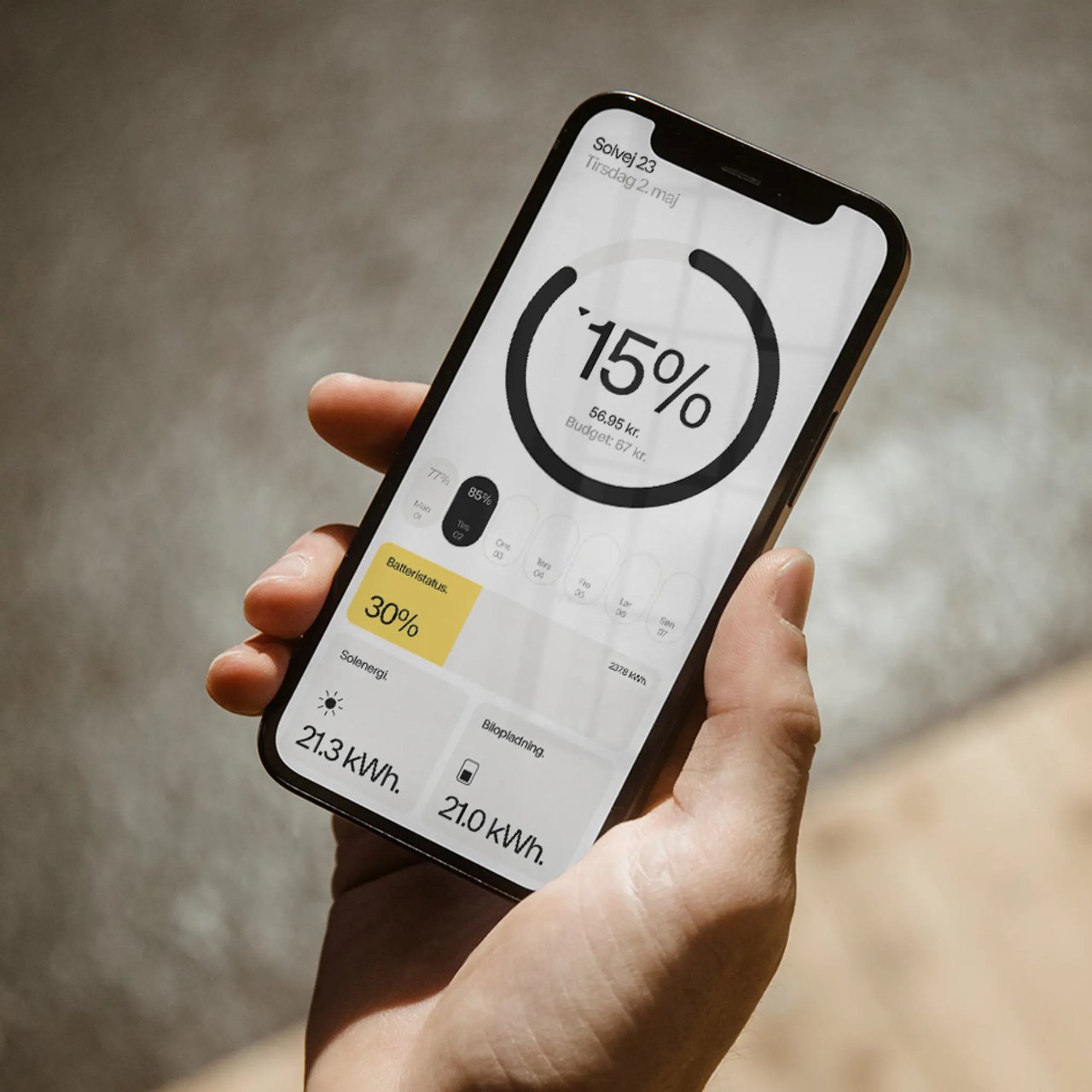Watts
Reducing electricity consumption and CO2 pollution with Watts
The Watts app created by Lithuanian programmers is the first app of its kind in Europe, which enables users to choose electricity sources, giving priority to renewable ones.
This not only saves their own bill, but also the planet's.

Sustainable household planning
Almost five years ago the Watts project was launched with a unique approach. It doesn't belong to the twoday group, instead we discovered it and independently offered our services to the Danish energy company SEAS-NVE ourselves. We can confidently say we operate like a startup – applying our own knowledge and managing the project from A to Z. This approach presents challenges, yet it also grants us significant freedom.
Every team member has the freedom to propose technological changes or additional functions to solve emerging problems. We take team development seriously because we understand that the success of the Watts project depends solely on us. Like many IT specialist teams, we follow the Agile methodology.
Sustainability, ecology, innovation, and technical challenges are fundamental elements that helped us quickly assemble a team of 14 specialists who have been dedicated to developing this project for five years.
Saved funds turn into green forests
We estimate that the application currently boasts approximately 150,000 active users in Denmark, helping them save around 10-15 percent of their monthly utility costs. These saved funds can be allocated to pay other bills, but within the application, they are converted into virtual currency. Users can choose to use this virtual currency to support tree planting initiatives, which can help offset their CO2 footprint to some extent.
The philosophy of reducing consumption and pollution has already become ingrained in Danish culture, making users appreciate the opportunity to convert their savings into green forests. Most users actively participate in this environmentally friendly activity and perceive it as an added value to the application.

Space for freedom
In Denmark, there are highly favorable conditions for such a solution to operate because a significant portion of the country's electricity is generated from wind farms, as well as from biofuels and waste. Utilizing machine learning and big data analysis, the app seeks to predict the habits of each user related to electricity usage. Based on this data, it creates a personalized electricity usage model. By integrating this model with weather forecasts, the user's location, and information about changes in electricity prices on the market, the app informs users when it's better to abandon traditional sources of electricity generation and use alternative ones.
The application also provides recommendations regarding devices that consume too much energy and calculates potential savings by making changes, such as replacing an old washing machine with a new one. It's also easily adaptable when planning routine household tasks.
With the help of the app, Danes even plan their household activities, for example, at times when energy is derived from renewable sources, they charge various devices, intensify laundry, vacuuming, cooking, and so on. Another solution, already in development and well-suited for Danes, is the charging of electric vehicles based on electricity market data and a personalized model of user electricity usage. In other words, the app is connected to an electric vehicle charging station and automatically charges the vehicle at the optimal times. This way, it reduces the user's electricity costs while also minimizing environmental pollution.


Why wait for tomorrow? Let's have a conversation today
If you would like to hear more how we could help you, please fill in the form and we will contact you soon.
Read most recent blogs
.jpg)
Control vs. convenience: the consequences of your Azure routing decisions
In my experience working with Azure, many organizations adopt a cloud-first strategy but fall short in cloud readiness – particularly when it comes to their cloud skills. To bridge this gap, they sometimes lean on Microsoft’s Enterprise-Scale framework, using landing zones and hub-and-spoke topologi...
%20(1).jpg)
Software’s real cost: building the wrong features
Every year companies spend millions building software that looks right in a demo but collects dust in production. The issue is not lazy engineers or indecisive stakeholders. It is a gap in understanding between the people who know the problem and the people who write the code.

Career growth at twoday – new journeys, new voices
We believe the best way to understand growth is through the people living it. That’s why we’re sharing more stories – shining a light on the different paths our colleagues are taking at twoday, and showing how every journey brings lessons, challenges, and moments worth celebrating.